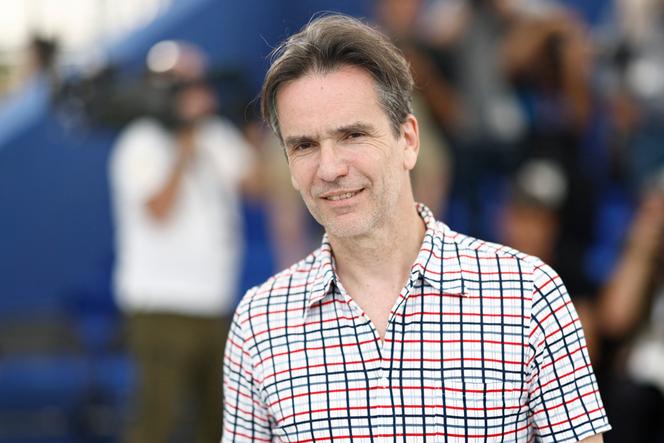


It's not every day that a film about an undocumented deliveryman with an unknown actor in the leading role is released in over 100 theaters. But then again, L'Histoire de Souleymane ("The Story of Souleymane"), director Boris Lojkine's third feature, is no ordinary film: It's a thrilling drama set in the unfamiliar world of bicycle couriers.
The director, who was born in 1969 and has a degree in philosophy, takes viewers on a journey in close pursuit of Souleymane (Abou Sangare), a complex Guinean deliveryman. While running errands, the young man anxiously prepares for his asylum interview: Souleymane tries to memorize the story he's been given to fit into the administration's mold, which isn't his own. The film won the Jury Prize in the Cannes Film Festival's Un Certain Regard section, while Sangare, a mechanic by trade, received the Best Actor award for his precise and emotional performance.
In an interview in a Paris train station café between two preview screenings, Lojkine explained why he had made the delicate choice to feature a migrant character who lies to get his papers. "I didn't want a politically correct film with a nice asylum seeker. As if you couldn't have characters with some depth if they're migrants. I'm not trying to be a spokesperson; I just want to tell the fascinating stories of these people," the director explained.
At Cannes, festival-goers were moved by Sangare's story. Born in 2001 in southeastern Guinea, he has been living in Amiens for the past six years. He left his country to help his sick mother, who died after arriving in France. He enrolled in a vocational program as a truck mechanic and was refused a residence permit several times. "Abou is very traumatized," stressed the filmmaker. "After Cannes this summer, the prefecture suggested to Abou to submit a new application. This time, we're optimistic, barring any counter-orders from our new interior minister, which can't be ruled out," said the director, in an allusion to Bruno Retailleau's recent comment that "immigration is not a chance" for France. Over his coffee, he added: "Whatever happens, we won't give up."
Lojkine, wearing jeans, a fleece and a backpack, became a filmmaker after dropping out of the French education system. He didn't see himself spending his life in a library like his parents, both of which are academics: his mother a professor of English literature, his father a sociologist at the French National Center for Scientific Research. "I enrolled in the Ecole Normale Supérieure at 19. I could already count my pension points until I reached 65... It suddenly scared me a little."
You have 44.78% of this article left to read. The rest is for subscribers only.
